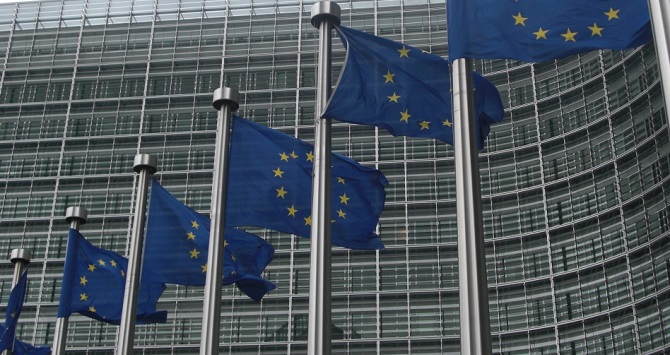 Signing off the LSE Media Policy Blog for the holidays, LSE Fellow Sally Broughton Micova, who has been acting LSE MPP Director for the last three months, takes a quick look at where things stand on some of the big issues we have been following as we close 2014. The whole MPP team wishes you happy holidays and all the best in 2015 and will be returning the week starting January 5 2015.
Signing off the LSE Media Policy Blog for the holidays, LSE Fellow Sally Broughton Micova, who has been acting LSE MPP Director for the last three months, takes a quick look at where things stand on some of the big issues we have been following as we close 2014. The whole MPP team wishes you happy holidays and all the best in 2015 and will be returning the week starting January 5 2015.
Copyright, Connected Continent & Data Protection
The big European event of the year was, of course, the election of the new European Parliament and Commission. The interruption of the elections left us waiting for the outcome of the Commission’s consultation on copyright, which received a record number of responses and should lead to a proposal for changes to EU rules. The proposed changes to EU data protection legislation were also on hold. The draft legislation currently on the table was adopted by the previous Parliament in March, before the historic Google Spain decision by the European Court of Justice in which it ruled that search engines are data controllers and must consider requests from individuals for the data connecting their name to online content “be forgotten”. The ruling has brought the notion of a “right to be forgotten” into mainstream policy discussions, and its implications are being considered as the new proposed rules are under final negotiations among the European Council in which member states, the Commission, and the Parliament are represented.
The Connected Continent proposal for changes in the EU’s telecommunications package of legislation passed its first reading in the European Parliament in April. The draft legislation contains a definition of net neutrality, strict conditions for allowing traffic management by ISPs, increased European co-ordination on spectrum, and an end to roaming charges within Europe. This version is currently with the Council where it seems to be facing some resistance. Trilateral negotiations among the Council and the newly elected Parliament and Commission are yet to come.
Uncertainty for the British Press
The aftermath of the Leveson Inquiry into the ethics, behaviour and practices of the UK press has been playing out throughout the year, and the Royal Charter that was adopted as the key instrument for implementing the Inquiry’s recommendations has yet to be utilised. Two new press self-regulators have been set up. The Independent Press Standards Organisation (IPSO) was established by many of the large publishers who were involved in the failed Press Complaints Commission and who have declared they will not seek recognition for IPSO by the body set up under the Royal Charter. An alternative self-regulator, IMPRESS, has been set up by a civil society group, and so far is mainly targeting smaller publishers as its membership. The newly selected IMPRESS board will now have to decide if it will seek recognition under the Charter. At stake is the activation of the exemplary damages clauses in the Crime and Courts Act, which go into effect as soon as a self-regulatory body is recognised, and can result in those outside the recognised regulator paying higher penalties if found guilty of misbehaviour. The British press is left with two competing self-regulators to choose from and uncertainty about the consequences of staying out of the system.
At some point in 2015, the new system of press self-regulation should settle, at least for a while, but British journalists face a new form of uncertainty, the consequences of which are only just being seen. In July, the British Parliament passed in record time amendments to the Regulatory and Investigative Powers Act through the Data Retention and Investigatory Powers law which gave security forces and police unprecedented access to communications data from telecommunications companies. Pushed through ostensibly to fill a gap left when the ECJ overturned the EU’s Data Retention Directive and in the name of fighting crime and terrorism, the RIPA has already been used to access the communication data of journalists. The legislation, which will be repealed at the end of 2016, has serious implications for investigative journalism and particularly journalists’ ability to protect their sources. The Commons Home Affairs Committee is awaiting a Government response after reporting on 6 December that its inquiry found RIPA not fit for purpose. The British press should be pushing hard for re-examination of the Act and perhaps retraction of its provisions in 2015.
The year ahead
In 2015, two more major policy issues will certainly be added to the agenda. The UK’s media policy cycle is essentially on hold now until the general elections in May, but with the BBC’s Charter set to expire at the end of 2016, the review of the current Charter arrangements will get going in earnest immediately afterwards. Although not directly part of the Charter Review process, Ofcom’s regular review of UK public service broadcasting will provide useful evidence going into the debates on the future of the BBC. Ofcom’s PSB review consultation is open already and closing at the end of February.
In Brussels, policymakers will be undertaking one of the Commission’s first “regulatory fitness” or REFIT exercises on the Audiovisual Media Services Directive (AVMSD). It is unclear exactly what this process will entail in terms of opportunities to contribute, but the main idea is to assess the extent to which the Directive is still fit for purpose in today’s media environment, and whether further de-regulation is possible, or necessary. The Commission started preparing back in 2013 with its consultation on connected TV that addressed the continued relevance of the regulatory distinction between linear and non-linear services, but there has not yet been a clear conclusion on that issue. The principle of regulation of broadcasters at their country of origin will likely be discussed in a new light in this round of AVMSD discussions, as the usual complaints from countries that have stricter advertising rules are compounded by concerns from the Baltic states over cross-border transmission of Russian language channels.
One final thought is that the ongoing Transatlantic Trade and Investment Partnership negotiations between the US and the EU may have implications on many of these issues, from data protection and copyright enforcement, to quotas and public funding in broadcasting. After the holidays, media scholars, activists and industry stakeholders may want to pay more attention to these negotiations, and demand more transparency in the process.
This article gives the views of the author, and does not represent the position of the LSE Media Policy Project blog, nor of the London School of Economics.






Excellent overview, thanks. And for all the good content this year! Happy holidays to all at MPP.